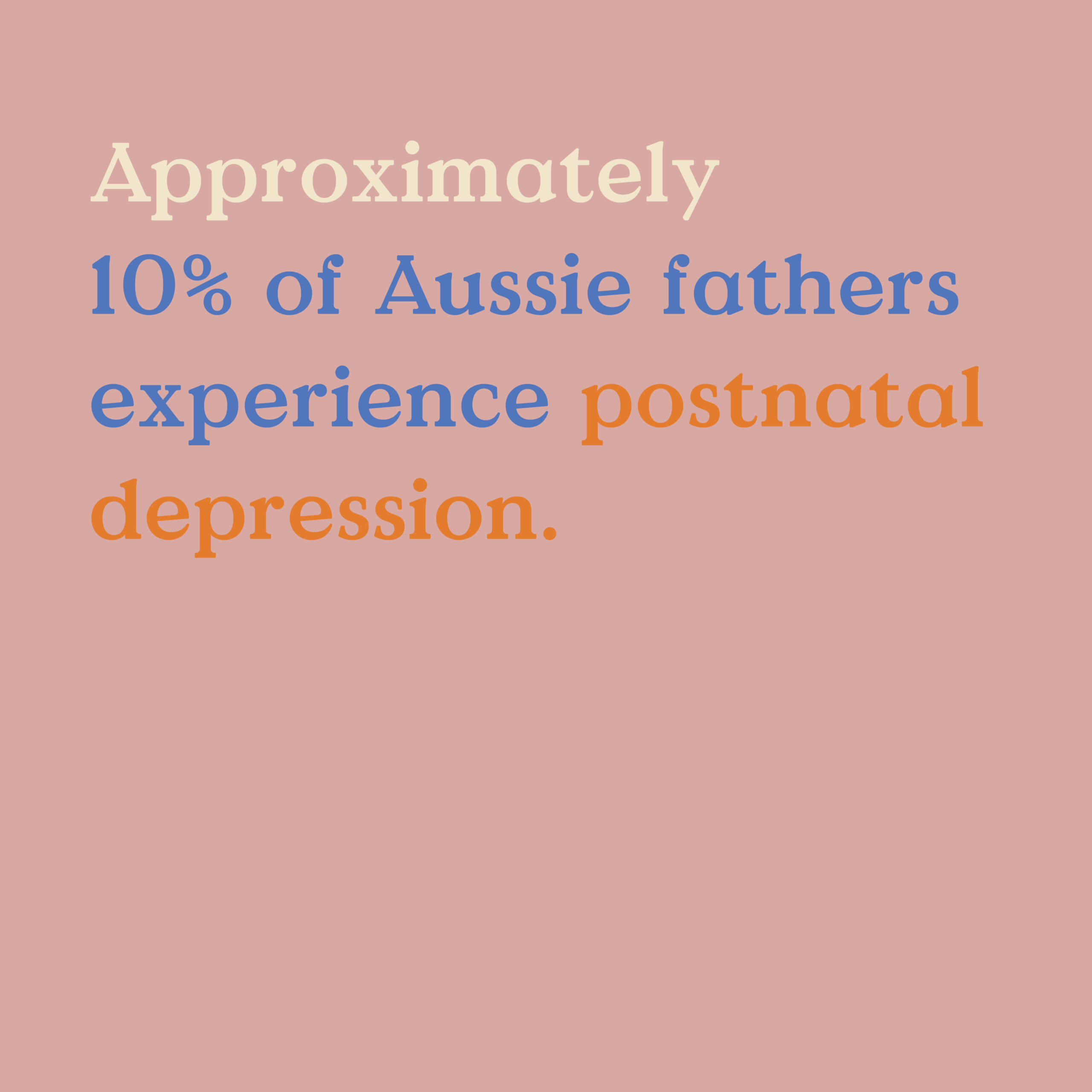
A guide to postnatal depression in fathers
A guide to postnatal depression in fathers
The arrival of a newborn can rouse happiness, excitement, anticipation…as well as some trepidation, anxiety and even depression. This is true for both expectant mothers and fathers. While most of us are well-versed in postnatal depression among mothers, it’s important to know it’s relatively common among men too. After celebrating Dad yesterday, we think it’s important to turn our focus to help understand his needs as a parent. Keep reading to learn how to ensure Dad is doing well after your little one arrives.
What is postnatal depression in dads?
Antenatal and postnatal depression occurs among both men and women. Of course, while men don’t physically give birth, they are at risk of postnatal depression when welcoming a new bub. This time is both life giving and life changing, for every parent. As with mothers, postnatal depression in fathers will present differently from one person to the next, and it can be hard to separate it from the general stress and fatigue of getting used to a newborn. The most important thing to understand is that it’s temporary and treatable. For many men, it can take courage to put their hand up and admit they’re struggling. However, mustering the strength to talk about it is the best thing a father can do to support his family.
How common is it?
More common than you’d think. Approximately 5% of Aussie fathers experience antenatal depression, with around 10% experiencing postnatal depression. This is only a small percentage less than the approximate 14% of women who are affected by postnatal depression after giving birth.

What causes postnatal depression?
There can be a number of contributing factors in dads developing postnatal depression. It can often be seen more frequently in first-time dads, with a new bundle of joy creating a whole new bundle of nerves.
Having to adjust to family life, feeling the pressures of learning to raise a child, and understanding how you and your partner will share the parenting load, can all be compounding reasons for stress in new parents. For many dads, trying to juggle the return to work while helping their partner keep up with things around the house, and taking time to bond with bub, can lead to increased fatigue and stress.
Much like women, men may also experience hormonal changes following the arrival of their child including reduced levels of testosterone and cortisol, which can trigger depression. For some, limited practical, emotional or social support, and a history of mental health issues can also be cause for the baby blues.
What about signs and symptoms?
Postnatal depression in fathers is common, but it often goes undiagnosed. Signs and symptoms can vary from one dad to another, and it’s important to look out for physical and behavioural changes. A dad who’s struggling to cope may show the following signs:
- Feelings of anger or resentment
- Loss of interest in activities he once enjoyed
- Withdrawing from his partner, family, and friends
- An avoidance of going out in public
- Loss of, or having too much, sleep
- Changes in eating habits
- Low energy levels
- Reduced sex drive
- Being afraid to be alone with bub
- Difficulty making decisions or thinking clearly
These symptoms will look different for everyone, and some will feel familiar to every parent, whether they’ve experienced postnatal depression or not. In general, if you’ve felt low, uninterested or unmotivated for two or more weeks, this may be a clear warning sign that it’s time to seek help.
So, how can we manage it?
Step one: Admitting that things don’t feel right.
A great way to combat postnatal depression is to talk to someone before bub is born, to mentally prepare for the significant life change. This could be an experienced dad in your circle, a friend or family member, a therapist, or even an online support group. None of this is a sign of weakness, rather a healthy sign that you’re prepared to look after yourself and your family. Postnatal depression is a deeply personal feeling but a shared human experience, so chances are you’ll be surprised at how many others have felt something similar.
Step two: Keep your partner in mind.
Both parents are likely part of a stressed and exhausted team that performs better together. Talk about how you’re feeling, and do your best to look after each other – that means eating and resting properly too. Some fathers may feel left out of the caring process, especially during childbirth and breastfeeding, so finding ways to bond with your bub can help both parents feel like a team again. Changing nappies, checking on your bub during the night, taking care of bathtime, and reading stories to your bub, can be simple ways to engage in this process.
Step three: Keep in touch with your friends.
It’s true, most dads don’t feel like they even have time to scratch their own tooshies, but seeing friends and other dads can be rejuvenating, and important.
Step four: Seek help if you feel you need it.
Postnatal depression in fathers is completely normal, and it’s important to acknowledge when you may need help. If you think you, or your partner, are experiencing any of the symptoms mentioned here, or are feeling like something doesn’t quite feel right, it might be time to seek help. If you can, talk to your GP, or look for support in the following places:
- Beyond Blue on 1300 22 4636
- Lifeline on 13 11 14
- PANDA on 1300 726 306
- MensLine on 1300 789 978
